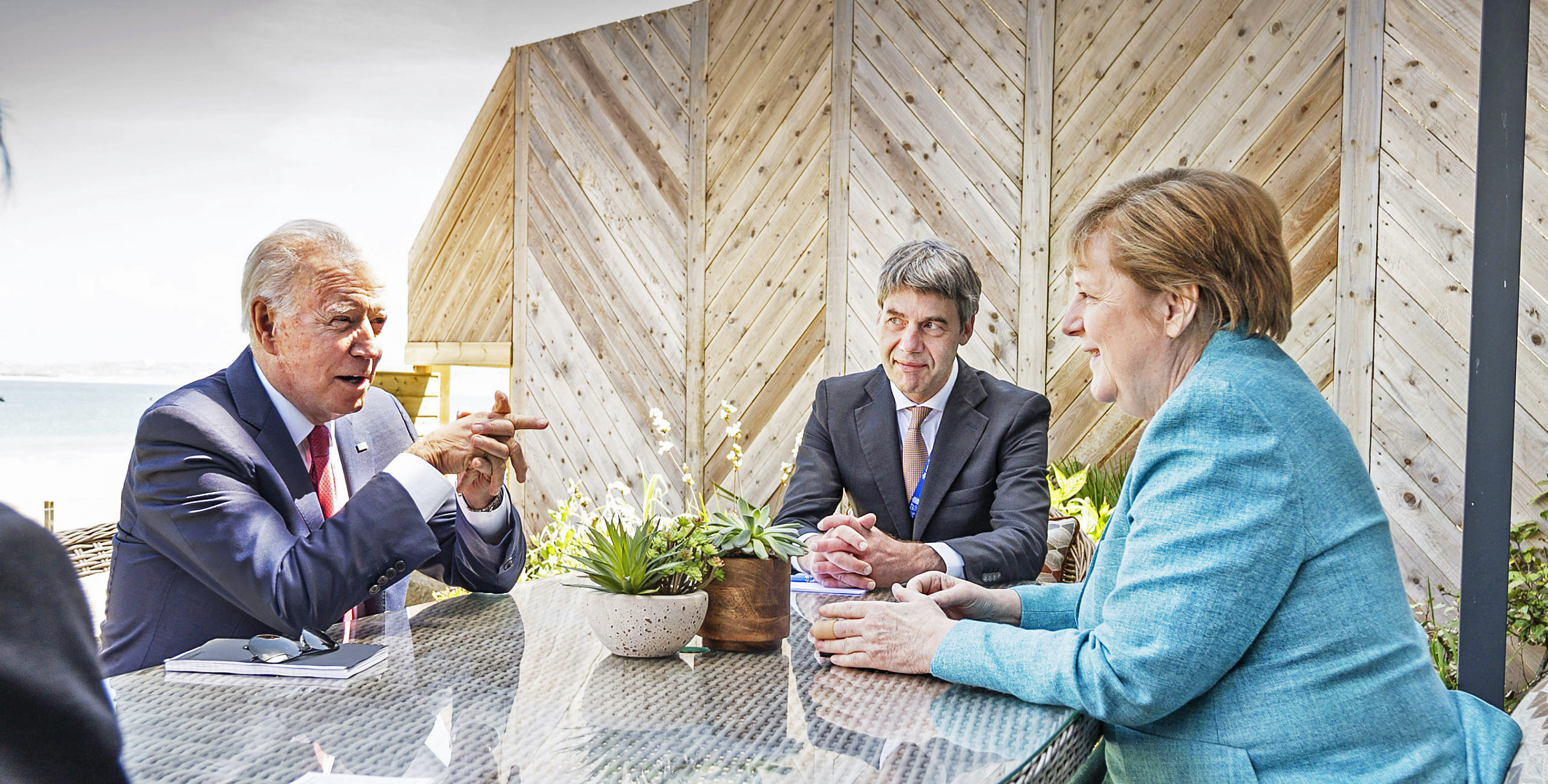Britain may think it has a special relationship with the USA, but Germany shares this ambition too. America has always held an irresistible pull for Germans. Just think all the way back to the 19th century, when German immigrants flocked West in their millions.
Today, 43 million US citizens describe themselves as having German ancestry. Helmut Schmidt, the vastly popular chancellor of West Germany from 1974-1982 once said that there would only be one other country he would choose to call home apart from his native Germany — the USA.
This special US-German relationship seems to have weathered the storm of the Trump era. There was a palpable sense of relief in Berlin when Joe Biden was elected to succeed the 45th President last year. Antony Blinken, the US secretary of state, enthusiastically declared on a Berlin visit last month: ‘I think it’s fair to say that the United States has no better partner, no better friend in the world than Germany.’ Now Angela Merkel is dining with Joe and Jill Biden at the White House during her last ever visit there as German chancellor. All is well.
Or is it? Behind the friendly smiles and warm words, tension has been brewing between the USA and Germany that transcends the Merkel-Trump animosities. A conflict of interest between Germany and the United States has grown in recent years. It’s part of a wider — and real — identity crisis: what kind of country does Germany want to be? Its geopolitical position in the centre of Europe has always made this a tricky question: East or West? The first German chancellor Otto von Bismarck experienced this headache trying to find a way forward for his newly created state, wedged between the great European powers of France, Britain and Russia. Famously he settled on the maxim: “The secret of politics? Make a good treaty with Russia.”
The German government seems to have taken a leaf out of the Iron Chancellor’s policy book. The controversial Russo-German gas pipeline Nord Stream 2, which is now nearly complete and sidelines the Eastern European nations, especially Ukraine, will make Germany ever more energy dependent on Russia. From Washington’s perspective this is a grave security risk.
Gerhard Schröder, Merkel’s predecessor as Chancellor has been entangled with the Russian energy company Gazprom and the Nord Stream project for years. Controversy was generated both in Germany, and in the US. (In 2005, the Washington Post described Schröder as a “sellout” due to his decision to work for Gazprom.)
But somehow nobody raised an eyebrow when Merkel’s government declared an end to nuclear energy in Germany following the Fukushima disaster of 2011. Having begun to phase out fossil fuels, particularly in the huge soft brown coal fields in North-Rhine Westphalia, in previous years, Germany is now in a position where its energy supply dictates its foreign policy.
In addition to Nord Stream 2, Merkel also pushed European investment deals with China without consulting Germany’s Western friends and Allies. This was an affront to the new Biden Administration as a deal was struck in December, before the new President had even been inaugurated.
The tone of Merkel’s visit to Washington may be friendly and congratulatory, but this is an easy diplomatic feat given that the German chancellor will be retiring in September. Merkel’s successor has serious geo-strategic thinking to do. The interests of the central-European states and the West are drifting further and further apart.
Germany is rapidly running out of fences to sit on.











Join the discussion
Join like minded readers that support our journalism by becoming a paid subscriber
To join the discussion in the comments, become a paid subscriber.
Join like minded readers that support our journalism, read unlimited articles and enjoy other subscriber-only benefits.
Subscribe